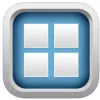Take a look inside 5 images
Bitsboard
Pros: Easy navigation, fun design, and simple games offer an engaging approach to speedy review.
Cons: Some games seem more flashy than effective. Many available collections turn out to be pricey in-app purchases.
Bottom Line: A great tool for kids who love to learn by repetition, but not a great fit for all content or all learners.
Upload your own set of images or words to the Bitsboard website and share your board with students. Encourage students to make their own boards and share them with one another as they prepare for quizzes or tests. Ask kids which games and activities seem to help best with different kinds of quizzes. Are some games better for studying than others?
Bitsboard is a flashcard app with lots of built-in mini-games. Flashcard sets are organized into individual boards, which are organized by subject. Users can search public collections and use pre-created boards, or they can use the developer’s website to create and upload their own content. Each board is a flashcard set, and cards can feature text, images, and audio. Once users pick a board, they can select one of 16 games to use to study the content, including flashcard reviews, memory games, matching games, and multiple-choice questions. Teachers can use the app to upload their own boards, either entering flashcards one by one or uploading them from Dropbox. Teachers can choose to share their boards publicly or directly with students. Users can access and share their progress through the app’s opening login screen and the settings menu.
Many boards are available in the app’s catalog; unfortunately, most of them require an in-app purchase. Users can either purchase boards one by one (at an average cost of $2.99 per board), unlock all games ($8.99), add unlimited users to boards ($3.99), or get full monthly or annual access to boards ($9.99).
Bitsboard is an attractive, flexible way to approach simple content in different ways, to vary studying approaches, and to have available a tool that automates certain processes that can be tedious for a teacher, such as creating multiple-choice or true/false questions. It’s also impressive that each game can be fine-tuned to match a user’s preference or needs, like the number of rounds and the sequence of cards. This could be a great resource for reviewing vocabulary for standardized tests, ELA classes, and world-language classes, and it might be a nice way to use images to study art history, social studies, or geography. Users could also use images of cell structures to study for biology class or to study a list of polyatomic ions for chemistry.
These examples illustrate a larger point about the limitations of studying with any flashcards, digital or otherwise: They’re a great approach for memorization, but have limited efficacy for inspiring deep learning. Bitsboard could certainly help kids find varied ways to approach more tedious study tasks, but they won’t necessarily be helpful preparation for tests or subjects that require deeper analysis and reflection. Furthermore, the in-app purchases make the cost of Bitsboard add up quickly. This might be the best value for teachers who upload their own content, but look elsewhere for good flashcards you can get for free.











